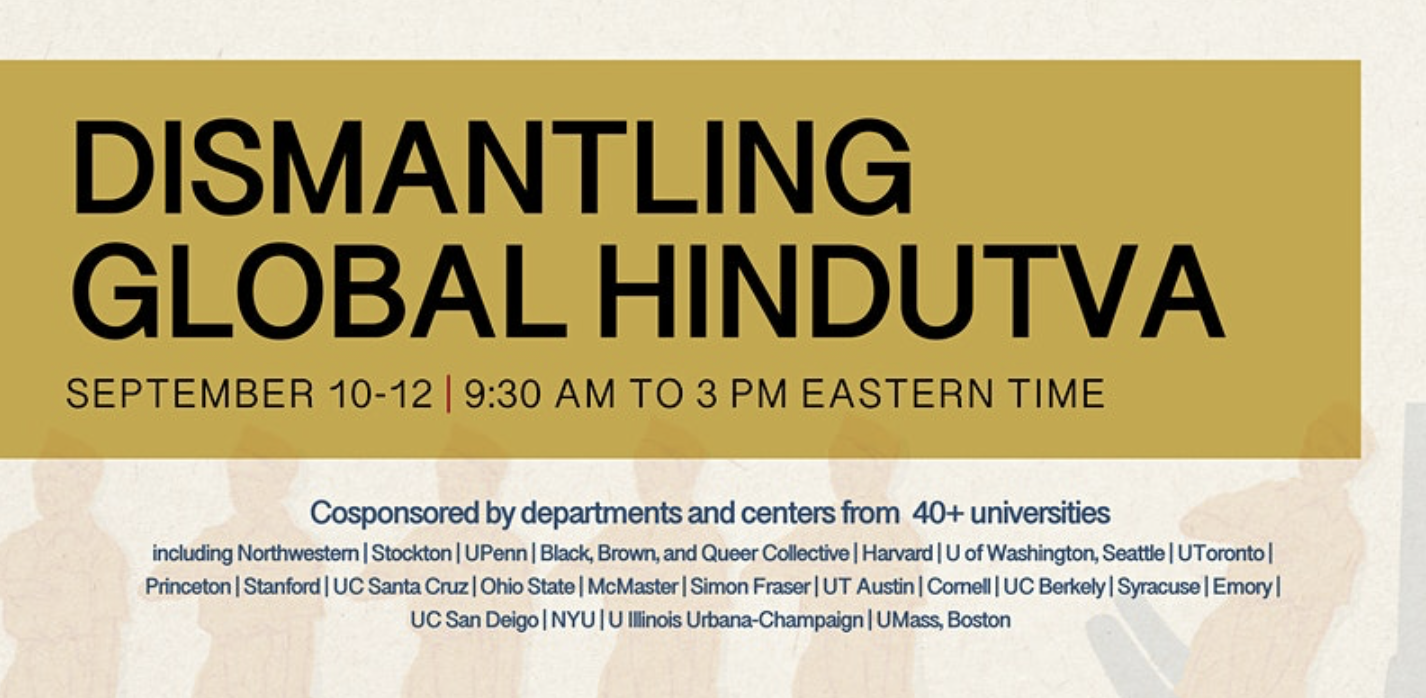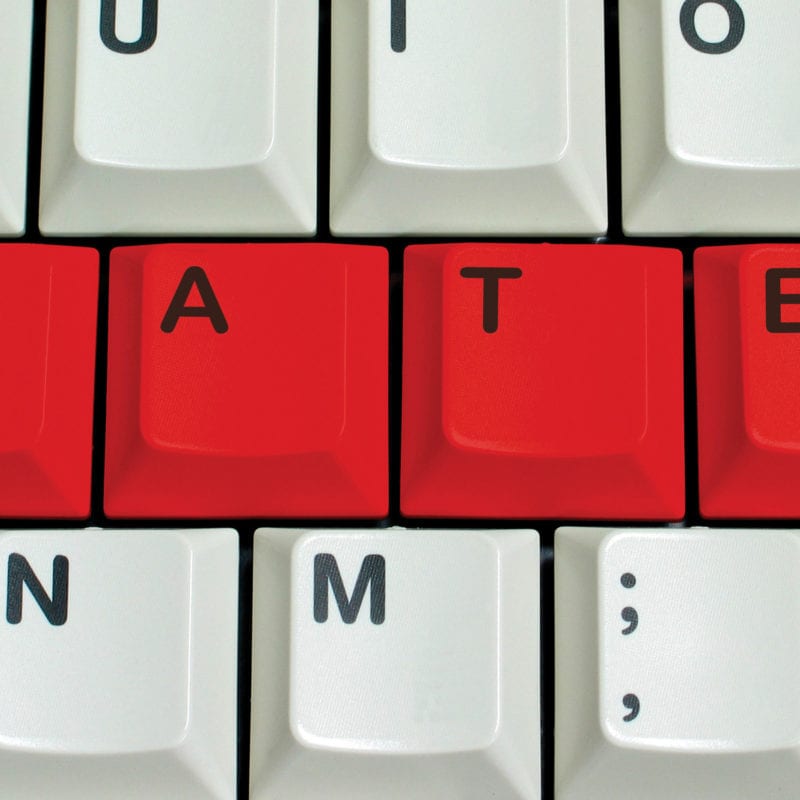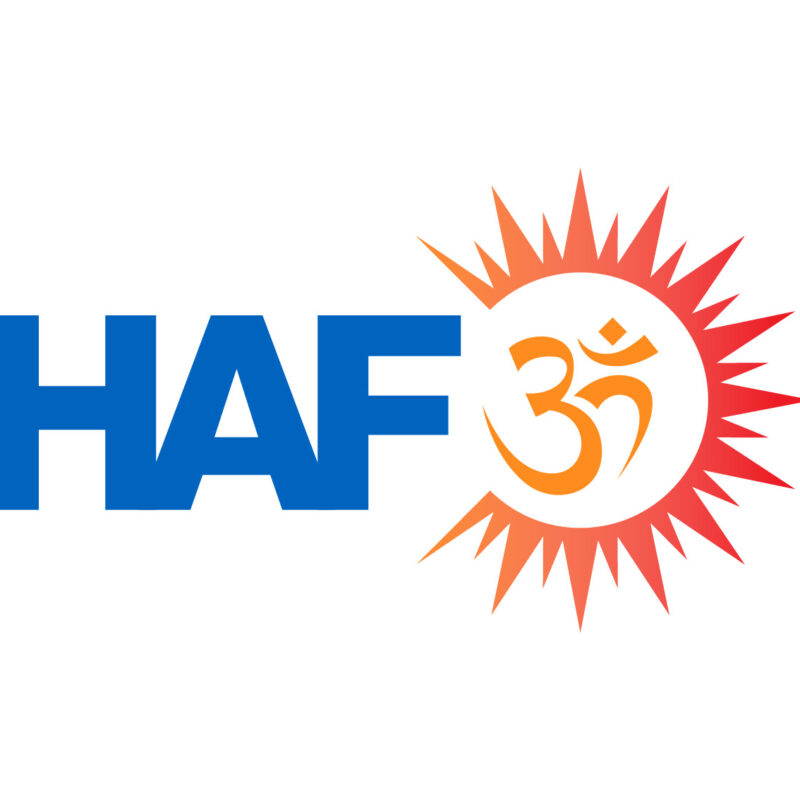
Dismantling Global Hindutva is a conference that is intentionally Hinduphobic. In working to “dismantle” rather than understand an imagined global threat of political, “supremacist” Hindus, these activists and activist-scholars hide behind supposed academic freedom to fear-monger and dehumanize Hindus around the world.
Here’s how.
1) Imagining Hindu Supremacy and its global threat
Click on “About this Conference” and you will learn to fear the “large Indian Diaspora” which has “potential for building links with other supremacist ideologies.”
The analysis of a potential, rather than actual threat is a key concern for DGH organizers.
Let’s break this down.
Global supremacist ideologies — ideologies which seek ethnic, racial, or religious hegemony and which have transcended national borders — are predicated on the exclusion and subjugation of religious groups such as Hindus.
In the absence of logic and evidence, claiming that a global Hindu supremacy is coming for you is fear-mongering for those unfamiliar with Indian or Hindu history or geopolitics.
The well-known Vedic maxim Ekam sat vipra bahudha vadanti “Truth is one; the wise call it by many names” illustrates the deep-rooted intellectual generosity of Hinduism, which has historically fostered diverse religious and cultural traditions.
When considering if this attempted critique of Hindu philosophies, cultures, or politics is legitimate, we must ask ourselves: Is there any other religious group for which hypothesizing and fear mongering about their potential alliances at an academic conference would be appropriate?
Perhaps to respond to this obvious critique, the conference organizers have put together this piece on why “Hindutva is not Hinduism.”
But their definition of Hindutva excludes the literal translation, legal definition, and the range of cultural and political viewpoints from the past century which have taken on different valences. They go on to make several more ill-considered points, including that “Hindu supremacists” have “worked hard to shield themselves from legitimate critique for their extremism by claiming to speak for a persecuted Hindu community” from “the early twentieth century onwards” (emphasis mine).
Hindus are not just “claiming” to speak for persecuted minorities but are actually advocating for the human rights of Hindus. Moreover, we must recognize that India became an independent nation in 1947. The conference organizers have reimagined a Hindu supremacy during a time when India was ruled by the British. There was no movement to establish Hindu supremacy while Hindus and other Indian religious communities were most vulnerable. This ahistorical analysis is Hinduphobia.
2) Delegitimizing Hindu voices
The event organizers attempt to delegitimize critiques from Hindus by labeling Hindus that critique as supremacists, claiming that these critiques are in bad faith, and asserting that any critiques from Hindus are not coming from real people. This is Hinduphobia.
Consider the Hindutva Harassment Field Manual and the Statement of Support by the South Asia Scholar Activist Collective. Both of these pieces claim that Hindu critiques of this conference are in “bad faith” or fraudulent and dishonest. In fact, they go further to suggest that such dissenters are racist, casteist, bigoted, and dangerous. Such ad hominem attacks attempt to diminish the merits of their vocal dissenters and further silence those who disagree. This is contrary to the very free speech protections these academics themselves claim to cherish. Demonizing Hindu voices you don’t agree with is Hinduphobic.
Through various community led campaigns, over 1 million communications from Hindus and allies from across the world were sent to university administrations to express concern over this event. Various petitions drew well over 10,000 signatures. But the Community Organizations Support Letter portrays this grassroots momentum as “the use of troll armies to mimic a grassroots response.” Without any evidence, the event organizers are claiming that the very real people critiquing this conference — including Hindu students, faculty, parents, and alumni— are not in fact real humans. This attempt to dehumanize the voices and concerns of real Hindu people is not only unacademic, it is Hinduphobic.
3) Fearmongering
The conference links to a guide called Hindutva 101 which states, “Hindutva groups are active in the United States — they might be active at your local temple, on your college campus, or elsewhere in your community.” This blatant fear mongering akin to McCarthyism— where there is a potential communist threat behind every corner. The guide goes on, “Hindutva or elite Hindu-centric ideas may be difficult to identify in campus settings, particularly in more casual, social interactions.” Difficult to identify, but somehow a pervasive threat you must fear. We cannot imagine this language being used to describe the perceived or actual politics of any other religious community. Fear mongering about Hindus is Hinduphobic.
4) A double standard
To determine if critiques of Indian politics are legitimate or whether they are veering into Hinduphobia, we can borrow language used to distinguish legitimate criticism of Israel from antisemitism.
All governments including that of the largest democracy in the world, India, need and deserve critique. But by attempting to “dismantle” rather than critique the vague but somehow global threat of Hindutva, these conference organizers attempt to delegitimize, demonize, and create double standards for Hindu communities around the world as well as all people (regardless of religious or cultural background) in India.
The conference organizers have imagined Hindutva as Hindu nationalism. Nationalism takes different forms in different contexts, and is certainly not a political idea limited to India. If the logic of “Dismantling Global Hindutva” was applied across the world, the global threats we all face would be numerous and egregious. According to Pew Research, in 2017 over 80 countries have an official state religion or give preferential treatment to one religion over others. But the anxiety about Hindu nationalism has been magnified around Indian politics, due to a very real double standard.
There is currently no country in which Hinduism is the state religion. The only way a global Hindutva which is understood as Hindu nationalism can be imagined is if Indian-diaspora Hindus, most of whom cannot participate in the Indian political process, are assigned that label unwillingly. Politicizing and demonizing Hindu identity is Hinduphobic.
5) Hinduphobia denial and erasure of violence against Hindus
Attempting to demonize Hindus, Hindu activists, and India is a neocolonial project with grave consequences. When Hindus are portrayed as always perpetrators, but never victims of violence, as they are by those involved in the DGH event, there is intentional dehumanizing of Hindus and erasure of violence against them.
Hinduphobia is “a set of antagonistic, destructive, and derogatory attitudes and behaviors towards Sanatana Dharma (Hinduism) and Hindus that may manifest as prejudice, fear, or hatred.” In other words, Hinduphobia is a negative visceral reaction, prejudice, and discrimination towards Hindus.
In contrast, Hinduphobia is described by supporters of the event as “a term deployed by Hindutva forces in the west to silence critiques of casteism, Islamophobia, sexism, anti-Semitism, racism, and other forms of supremacist ideologies at the heart of Hindutva.” In other words, Hinduphobia does not exist for DGH and its participants and supporters, and in fact is a ruse for Hindus to employ various forms of discrimination.
The real fear, hatred, and disgust towards Hindus meant that neither the UN or US intervened during the 1971 Bangladesh Liberation War, where approximately 3 million Hindu, Muslim, Christian, and Buddhist people died and more than 10 million people were displaced. Hindus were a particular target of this genocide, which was noted in the United Nations although the international community did not intervene. During this Hindu genocide President Nixon “scorned elites who worried that “we’ll lose six hundred million Indians (sic).” With withering sarcasm, he said, ‘Great loss.’”
Since 1971, attacks on Hindus and other minorities in Bangladesh and Pakistan continue with impunity. In the beginning of August 2021 there were mob attacks on Hindus in both Bangladesh and Pakistan — the former in response to a group of Hindu women singing religious songs and the latter in response to a 9 year old boy being accused of blasphemy.
These and many other examples of genocide and ethnic cleansing are both overwhelming and consistently minimized and ignored because of Hinduphobia. To deny genocide, ethnic cleansing, and continued human rights violations against Hindus is Hinduphobic.








































